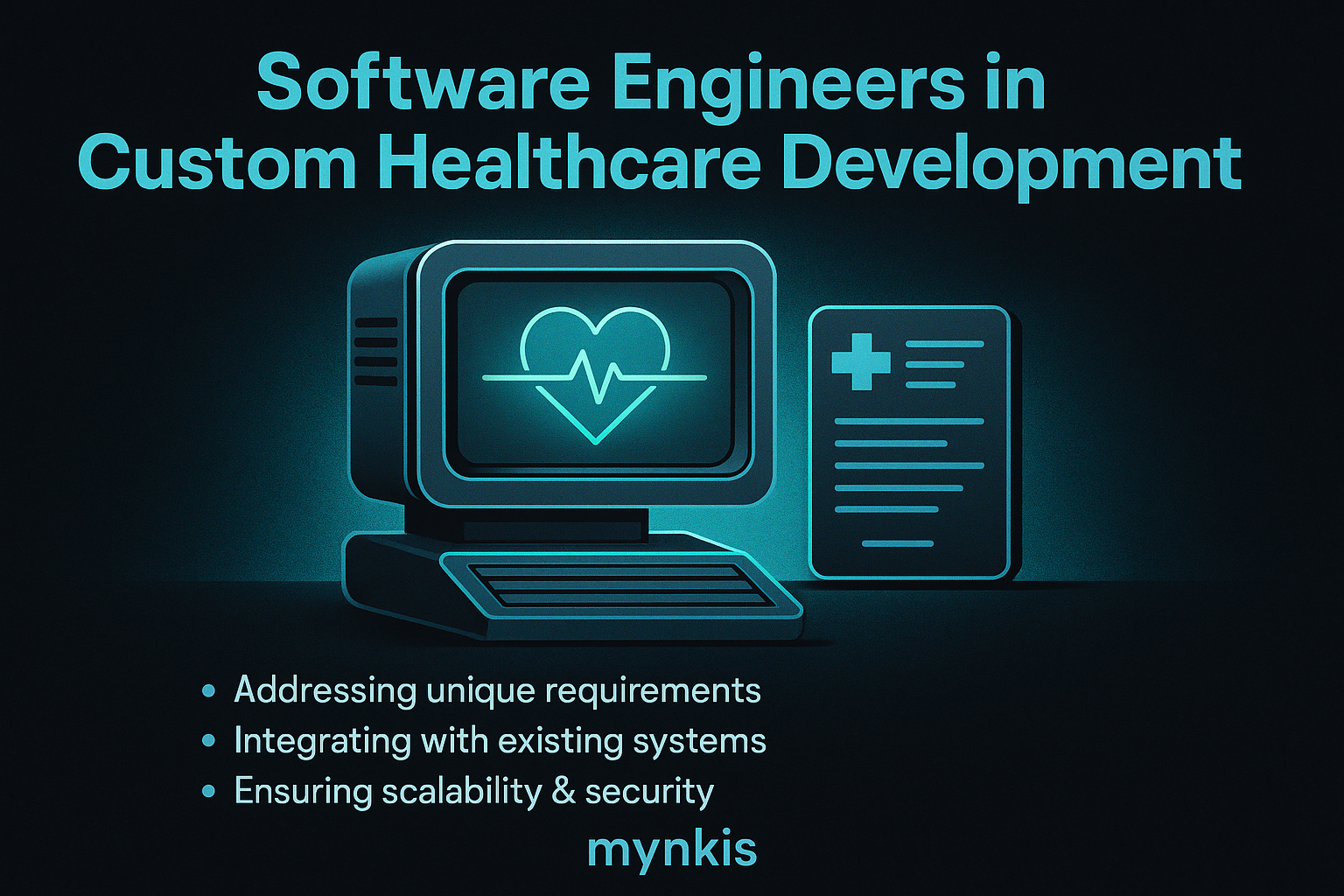Schedule a Demo
Custom development transforms generic solutions into tailored tools that fit an organization's unique needs. For clinics and hospitals, this often means crafting secure patient portals and efficient data management systems. At the heart of these creations are software engineers, serving as the compass guiding the project from conception to deployment.
I've worked with operations managers in healthcare who emphasize the crucial role of a software architect. A great architect isn't just someone who lays out the structural foundations; they're master planners, defining the system's blueprint that integrates complex data management, HIPAA compliance, and user experience—all specifically tailored for the healthcare sector. Their involvement ensures that your project begins with a solid foundation, fostering scalable, secure solutions that clinics and hospitals require.
Imagine the significance of a seamless patient portal interface in a healthcare setting. It's about more than just accessing medical records; it's about providing an experience that is intuitive and efficient, drawing from the skills of frontend engineers. These specialists focus on crafting the visual and interactive elements ensuring patient engagement. From scalable designs to responsive layouts, frontend developers directly influence how well patients, and by extension, healthcare providers, navigate the system you implement.
The backend is where the magic happens silently behind the scenes. In health data management, backend engineers ensure that patient information not only meets compliance standards but is also seamlessly processed and securely stored. I've found in discussions with health system directors how the expertise of a skilled backend developer can elevate your data handling to top-notch standards, making life easier for healthcare providers.
In my experience, full-stack developers bring something special to the table. They know the ins and outs of a system—able to dip their hands into any part, be it frontend, backend, or database architecture. I've seen full-stack engineers turn the tide for healthcare projects by quickly jumping between elements and optimizing workflow where others might struggle, ensuring a project's success that marries functionality with the seamless experience desired by both clinics and patients.
A database can be likened to a vital organ in a health system's body—processing and storing critical patient data which if compromised, could shake the entire system. Database specialists are the guardians ensuring data integrity. According to research from the National Institute of Standards and Technology (NIST), healthcare institutions rank among those needing the highest levels of data security—how database engineers manage these repositories can make or break the efficiency of your clinic or hospital.
Having QA engineers pore over every line of code might seem painstaking, but their role is fundamental to the success of health software. They scrutinize every element to align with medical regulations like HIPAA and to ensure applications deliver flawlessness. From my sessions with quality control leads in healthcare, I've noted a correlation between thorough QA efforts and reduced system errors, reflecting directly on patient safety and satisfaction.
The world of DevOps seems far from the clinic, but integration and deployment are really the bridges between development and the healthcare setting. Think about updating that patient portal—there's where a DevOps engineer ensures the project moves smoothly from the hands of developers to the hands of nurses and physicians. Their automation prowess makes your custom software solutions at clinics and hospitals responsive to evolving needs.
Hospitals and clinics, with vast patient data sets, are prime targets for cyber threats. It's here that security specialists come into play. Crafting custom software without fortifying it against cyber risks is negligent—this is where dedicated security engineers step up. My interactions with cybersecurity officers reveal profound insights into building an impenetrable fortress around medical data management.
Putting the patient first begins with empathic UX design. From initial research into patient workflows to the final product—a UX designer fine-tunes your custom software to reflect an understanding of end-user's medical needs. I believe that without these design talents working closely on your project, the journey from appointment booking to managing medical history could be arduous and disruptive.
In custom software, Agile methodologies are the landscape of project management loved by professionals across sectors. A scrum master fosters team synergy and communication which is key to successful custom development outputs for healthcare. From observing my tech buddies steer projects, adapting swiftly to newly published healthcare compliance requirements proves less daunting with an agile conductor in tow.
Collaboration isn't merely a buzzword in the healthcare development world; it's the path to achieving a holistic solution that serves at every level. Each role can make or mar a project, yet the collective effort produces something robust against illnesses as well as IT breakdowns.
Creating systems tailor-made for clin 00FFFFics and hospitals crosses over technical design into the territory of patient care. Although not exhaustive, these key roles form pillars that uphold the integrity of operational workflow, patient data handling, and the continuous advancement fueled by the latest in digital technology.
To remain at the forefront of health services, clinics and hospitals must embrace custom software development to address their unique challenges—journey into this future requires an understanding of the roles your development partners play. By entrusting vital areas such as coding, security, design, and more to the respective specialists, healthcare providers position themselves not only to comply with standards today but to provide next-level patient experiences.
